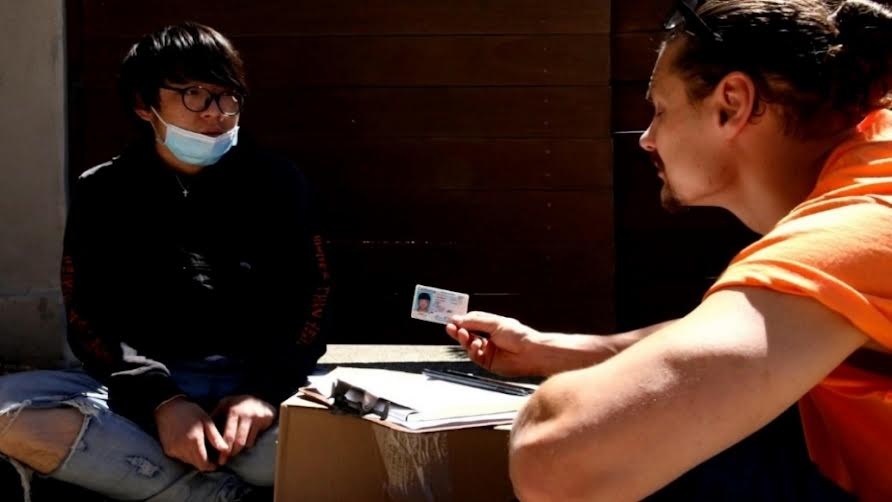Evidence collected during sting operations planned and carried out by YouTubers helped dismantle a massive Chinese organized crime group that allegedly scammed $65 million from more than 2,000 mostly senior victims across the United States, federal prosecutors in San Diego announced Wednesday.
“Not all heroes wear capes,” San Diego-area U.S. Attorney Adam Gordon said. “Some have YouTube channels.”
RELATED: South Bay DA pushes for jail time in organized retail theft case that stretched across region
Over the past week, federal agents in California, New York, Michigan and Texas arrested 25 of the 28 individuals indicted by a grand jury for allegedly participating in the fraud scheme. The defendants each face charges in San Diego federal court of conspiracy to commit mail and wire fraud and conspiracy to commit money laundering.
Related Articles
Gov. Gavin Newsom estimates 4,000 stolen vehicles recovered ‘in Oakland alone’ by CHP officers
Crime ring stole more than $10 million from dozens of Home Depot stores across Southern California, authorities say
8 suspected gang members arrested, accused of 92 Southern California burglaries
Bay Area prosecutors charged 1,200 theft felonies under Proposition 36. Will it help curb crime?
Freeway stop in East Bay ends with driver arrested on suspicion of retail theft
Authorities said three YouTubers who ran coordinated “scambait” sting operations in 2020 and 2021 produced videos that directly helped investigators identify three of the 28 defendants who are now under indictment. “The videos also helped shed light on how the conspiracy operated and led to the identification of high-level members of the organization,” prosecutors said in a news release.
Prosecutors said the alleged crime ring was primarily made up of Chinese nationals, many of whom had overstayed visas or were otherwise in the U.S. illegally, who worked with scam call centers in India to target victims. On average, those victims were at least 70 years old. That included a 97-year-old San Diego woman and widow of a Holocaust survivor who prosecutors said was repeatedly defrauded until she’d lost her life savings.
“Our office will continue to be on the cutting edge of law enforcement techniques to ensure justice for vulnerable victims who have been defrauded by Chinese organized crime,” Gordon said in a statement.
According to court documents in the case and information provided by prosecutors, the alleged crime ring got its start as early as 2019 and continued to operate until at least April of this year. The alleged fraud followed a familiar pattern for online scams, especially those targeting older individuals.
First, a member of the alleged conspiracy would cold-contact a victim through a phone call, text message, email or pop-up advertisement.
Next, the victims were directed to contact Indian call centers, where alleged co-conspirators would use social engineering techniques to build trust. In some cases, the alleged scammers impersonated bank employees and claimed a victim’s funds were compromised and must be kept safe by moving them to a different account. In other instances, alleged scammers impersonated government officials soliciting payments for fictitious fines.
Prosecutors said the most common ploy involved the alleged scammers convincing victims that they’d erroneously been “over-refunded” thousands of dollars that they needed to pay back through wire transfers or shipments of cash or gift cards.
In the end, the alleged criminals deployed various methods of separating the victims from their money, according to prosecutors. Sometimes that involved convincing victims to allow remote access to their computers, where the suspected scammers could complete online transfers of funds. More commonly, “conspirators requested that victims send money via overnight or express mail couriers to co-conspirators who were in the United States,” prosecutors wrote in court documents.
That’s where the YouTube “scambaiters” came into the picture.
In 2020, content creators on the YouTube channels Scammer Payback and Trilogy Media teamed up for a sting operation. The man behind Scammer Payback, who goes by the moniker Pierogi, used voice modification technology to impersonate an elderly woman who agreed to send a package of cash to an address in the Bay Area.
Later, the self-proclaimed “scam-fighting duo” of Ashton Bingham and Art Kulik from Trilogy Media confronted the person who was awaiting the package. Bingham and Kulik even convinced the man to hand over his driver’s license.
“Through extensive follow-on investigation, investigators identified the individual in the video as Zhiyi Zhang,” prosecutors wrote Wednesday in a motion seeking to keep Zhang, one of the indicted defendants, in custody without bail.
According to the prosecutors, investigators linked Zhang to the fraud ring, and to several other defendants, through multiple sources, including his account on a site for short-term rentals. He allegedly used those rental residences to receive packages stuffed with victims’ cash.
Prosecutors said these images seized from Zhiyi Zhang’s phone when he was arrested showed him posing with cash stolen from victims of a massive fraud ring targeting seniors. (Courtesy of U.S. Attorney’s Office via U.S. District Court filing)
“By cross-referencing Zhang’s short-term rental bookings with FedEx and UPS records, agents identified approximately 59 packages directly linked to Zhang,” prosecutors wrote. “Based on victim interviews and other financial analysis, those packages alone represent an estimated $1.8 million in victim loss.”
Zhang’s court-appointed attorney declined to comment Thursday, but said he would respond to prosecutors’ allegations during a detention hearing next week.
Prosecutors said two other co-defendants in the case “were also captured during other YouTube videos engaged in the conspiracy.”
Pierogi’s videos on the Scammer Payback channel also illustrated “how scammers in India collaborated with” the alleged crime ring operating in the U.S., prosecutors wrote.
One video included translations of the foreign-language background chatter during a call in which Pierogi is impersonating an elderly woman. According to those translations, those at the call center were mocking the person they believed to be a gullible victim.
“Many of the victims suffered substantial financial hardship, and numerous reported losing their entire life savings as part of the fraud scheme,” prosecutors wrote in the court filing seeking Zhang’s pretrial detention.
Each of the defendants in the case, who range in age from 23 to 48, faces up to 40 years in prison if convicted of the mail and wire fraud conspiracy charge.





